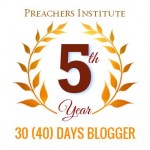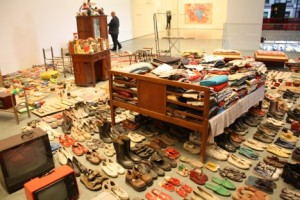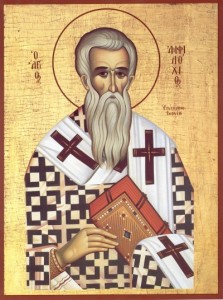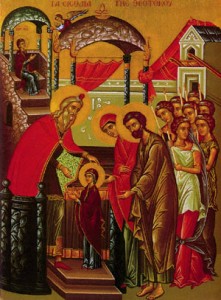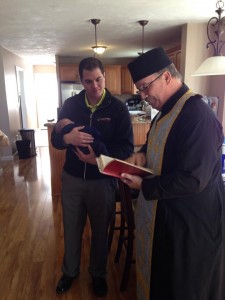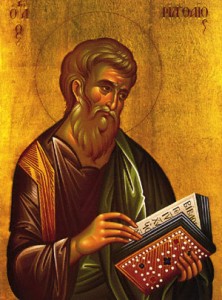
On the 16th of November the Orthodox Church celebrates the memory of the Holy Apostle and Evangelist Matthew. Matthew was the son of Alphaeus and was originally called Levi. He was a tax collector by profession and therefore not well liked by his countrymen. Matthew is an example of the power of transformation that Christ brings when we decide that we are to follow Him.
Like some of the other Apostles, Matthew was called by Jesus with the simple invitation to “follow Me.” I have mentioned before that we tend to make things complicated but if we follow the example of the Lord we simple invite people by asking them to follow us or, as was used by Jesus when calling Andrew, “come and see.” It does not have to be any more complicated than that.
Matthew was sitting in the custom house by the entrance gate to the city when Jesus passed by and Jesus asked Matthew to follow Him. Notice that Jesus did not command him to follow but simply placed the invitation in front of Matthew and he took it. I get the impression that Jesus did this a kind of an “over the shoulder” remark as He passed by, but the point is that this was simple invitation to have his life transformed.
The verses from the Vesper service tells his story:
The Word who had no beginning called you from the ranks of publicans to be His disciple, O Matthew, and urged you to follow Him in order to share in the kingdom He promised. The, O blessed one, you left all things, renouncing trouble and confusion, and you followed Him with a sure step. Now, O eye-witness of our God, you are filled with the ineffable vision of Him. Pray to Him to save and enlighten our souls.
Matthew is the best example of the transforming power of the Gospel. He was a tax collector, and a rather well off man as tax collectors usually were. By all accounts he was a cheat, as tax collectors often were. He lived a life that was full of everything he wanted. But there was one thing missing, his life was on a collision course of destruction. He was so mired in his own sin that he could not see it, but Jesus did, and he gave him a way out as He does for all of us.
The Gospel is an invitation to “come and see” and to “follow Him” the true master of our lives. There are tens of thousands of self-help books on the market that promise this or that if you just buy this book. I can promise you that the only one being helped by those books are the people who wrote them! The Gospel is transformative, Matthew experienced the living Gospel in the person of Jesus Christ, we have the opportunity to experience the living Gospel through His Church and her Sacramental life. All we have to do is “come and see.”
But I will warn you, following the Gospel is not easy. We will be required to change our lives and the way we do business. Matthew realized that his life was incompatible with the Gospel message and he had to allow himself to be transformed. We will be required to do the same. We will have to cast off the old person in order to put on the new, and that might be difficult, but He will help us all we need do is take His hand and He will lead us along the right path.
Following Jesus will not change us in an instant, it will take time. Many years ago, when it was discovered that smoking was bad for us, there were many commercials on television talking about our lungs and how after we stop smoking, they start to change from black back to pink. This took time, years in fact, to reverse the damage that had been done. Our lives are the same way but once we make the decision to become a follower our lives will start to be transformed.
This time of preparation, this time of Advent, should be used to allow the Gospel to form, inform, and transform our lives and we, like Matthew will be able to renounce “trouble and confusion” and “follow Him with a sure step.” All we have to do is make the decision to do it and except His daily invitation to us to “follow him.” Will it be easy, no but it will be the best decision we have ever made.
